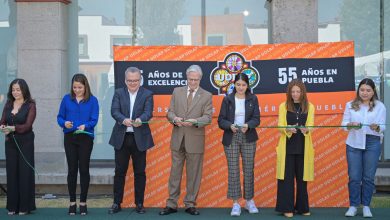Education in emerging economies
By Diana Bank
Education is always something interesting and controversial to talk about. We all go to school, some to private and some to public schools, some in cities and some in rural areas. For some, getting a good education is the most important thing since times immemorial. For others, having enough to eat will probably mean that their children will not go to school and will have to work, instead, to help support the family. The subsequent social problems that this entails are enormous. Nonetheless, governments are aware that education is key to the continued improvement and development of society.
This is more evident and urgent in emerging economies. As many people barely live on $1.25 dollars a day (the World Bank´s minimum amount for survival), education is key to increasing this number. Moreover, it is estimated that presently, around 100 million school aged children (of which two thirds are girls) do not attend school. In view of this, the World Bank´s “Millennium Development Goals” aim at giving all children, boys and girls, a full primary education. The Bolsa Familia, a poverty alleviation program under Brazilian President Lula, aims as much. With the government´s cash help to families (now over 11 million) under the condition that they send children to school and they get medical check-ups, many of them have at least seen the light at the end of the tunnel in matters of poverty reduction, increased nutrition and even, local economic development. The World Bank, one of the main sponsors of this program, has declared it a great success. If other countries would follow suit, we would see an absolute reduction in poverty in emerging economies.
Nevertheless, many leaders do not have the incentive or the willingness to take the responsibility to educate their people. It may suit them just fine. In the past, it was believed that a lack of education would help the ruling elite control its population and do as they pleased. The recent events in the Middle East have disproven this belief. On the contrary. People are tired of being poor, of not having a democracy and a good life. What they yearn for can easily be achieved through education. Moreso in this century, as the knowledge economy is increasingly dividing the “haves” from the “have nots”; those who know and are prepared for a life where technology will have an increased importance, and those who continue to stay behind due to a lack of many things, the main one being access to education.
Obviously, many (such as we have seen with the Brazilian case) understand that only through a good educational program, both at primary, but also at more advanced levels, is necessary in order to continue on the path of growth and enrichment of their countries. Such is also the case of China or India, part of the BRICS economies, and whose main attribute is the growth rate unmatched by developed economies. It is enough to admire the number of PhD students in American universities of Chinese (or even Asian) or Indian origins. Their strength lies in the fields of mathematics, engineering and other hard sciences, such as computer science, physics and software development, as well as in the new scientific fields, such as agrotechnology, biotechnology, genetic engineering, and nanotechnology. As these are so complex, many years of arduous study and extreme discipline are needed to keep up with these scientific advances and breakthroughs. No wonder they are the BRICS economies!
Although cultural aspects are very important in matters of education (for example, most of the girls in Pakistan do not go to school at all), governments should do more to provide accessible education. This is particularly important in rural areas, which often lack the infrastructure even for basic schooling. An innovative teacher in rural Colombia, Luis Humberto Soriano, thought of the Biblioburro, a traveling library carried by a burro and which moves on weekends from place to place. Children will browse books or learn how to read for what Soriano calls “the reduction in indigenous ignorance.” This is wonderful, but obviously not of the scale needed. Governments should provide the cash and infrastructure, as well as a generous budget to educate and train highly quality teachers.
Additionally, governments should continue investing in education at university level, both in undergraduate and graduate institutions. As mentioned above, the years of study necessary to decrease the technical divide keep increasing, as well as the need for investment in research and development (R&D) of these institutions. Patents filed means richness in knowledge, which can be translated into products, companies, job creation and money. This in turn can be reinvested to continue with additional innovation and entrepreneurial activities.
So you see, all of this is a cycle that needs to be broken for emerging economies to be truly emerging and reach the level of development where all have access to a decent and fulfilling life. Education is the main pillar of growth and well being. If only government leaders were more responsible and took the bull by the horns, it would benefit all. Including them.




